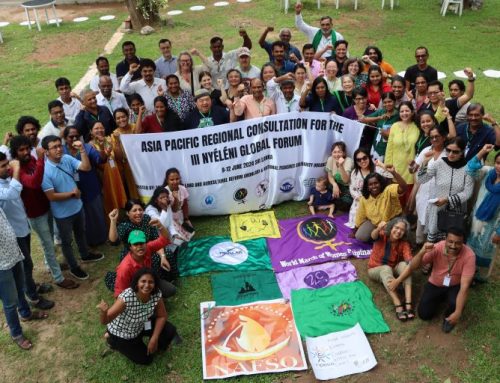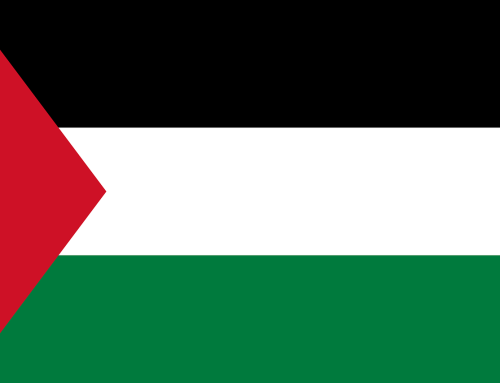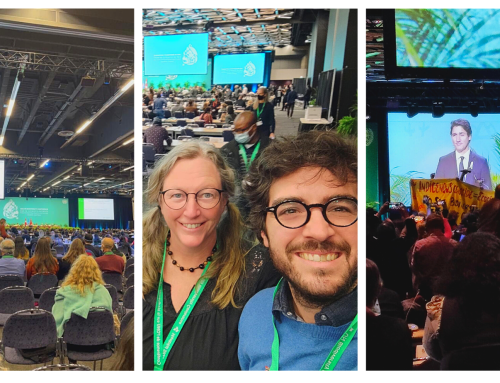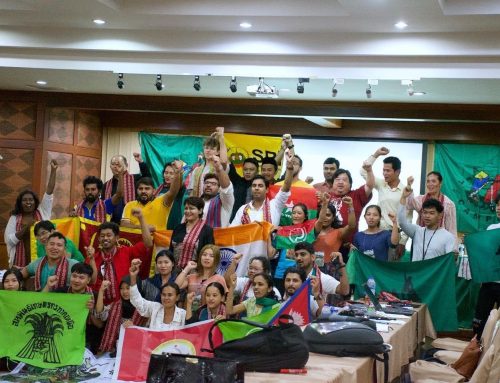AFSA National Committee member and International Liaison, Georgina Mulcahy, provides an update on taking the fight for food sovereignty global.
AFSA joins the European Coordination of La Via Campesina to extend it’s deepest solidarity to the people of Ukraine and calls for the strict respect of human rights.
Land for food, not for bombing!
Peasants united for peace!
Peace in Ukraine!
The wheels of AFSA’s international policy work keep turning in 2022! There are exciting and important policies that will be entering their final phases towards endorsement by UN bodies throughout the year, including the Global Biodiversity Framework – what many are calling the ‘Paris Agreement for nature’.
This year in Kunming, 193 national governments will come together to agree to a post-2020 Global Biodiversity Framework to replace the failed 2011 Aichi Targets. Civil society and the private sector (in the form of global organisations representing Big Ag such as CropLife, the peak body for agri-chemical and biotech companies) will be there in their roles as observers who are granted opportunities to make ‘interventions’ into the discussions. As one of the members of the International Planning Committee for Food Sovereignty (IPC), AFSA will be representing small-scale farmers and fishers, farm and food system workers, Indigenous Peoples, pastoralists, forest dwellers, landless, women and youth. Civil society still holds serious concerns that the targets will lock in more capitalist solutions such as offsets, and continue to advocate to remove productivity from the targets in the age-old battle against a productivist approach to agriculture.
Over in the UN Committee for World Food Security (CFS) the first draft of the Voluntary Guidelines for Gender Equality and Women’s Empowerment in the context of Food Security and Nutrition has been released. The Civil Society and Indigenous Peoples Mechanism actively participated in the most recent UN meeting to advocate for addressing the structural and causes of inequality (hello the patriarchy and intersectionality), a human-rights and non-gender binary approach, inclusion of LGBTIQA peoples, the importance of social protection, women’s control of and access to land and natural resources. We continue to centre our vision of a food system based on food sovereignty and agroecology, rather than small holders and peasants being subsumed into value chains and formal labour markets, as a means to achieve equality and empowerment. The negotiations within the UN are due to commence in May.






